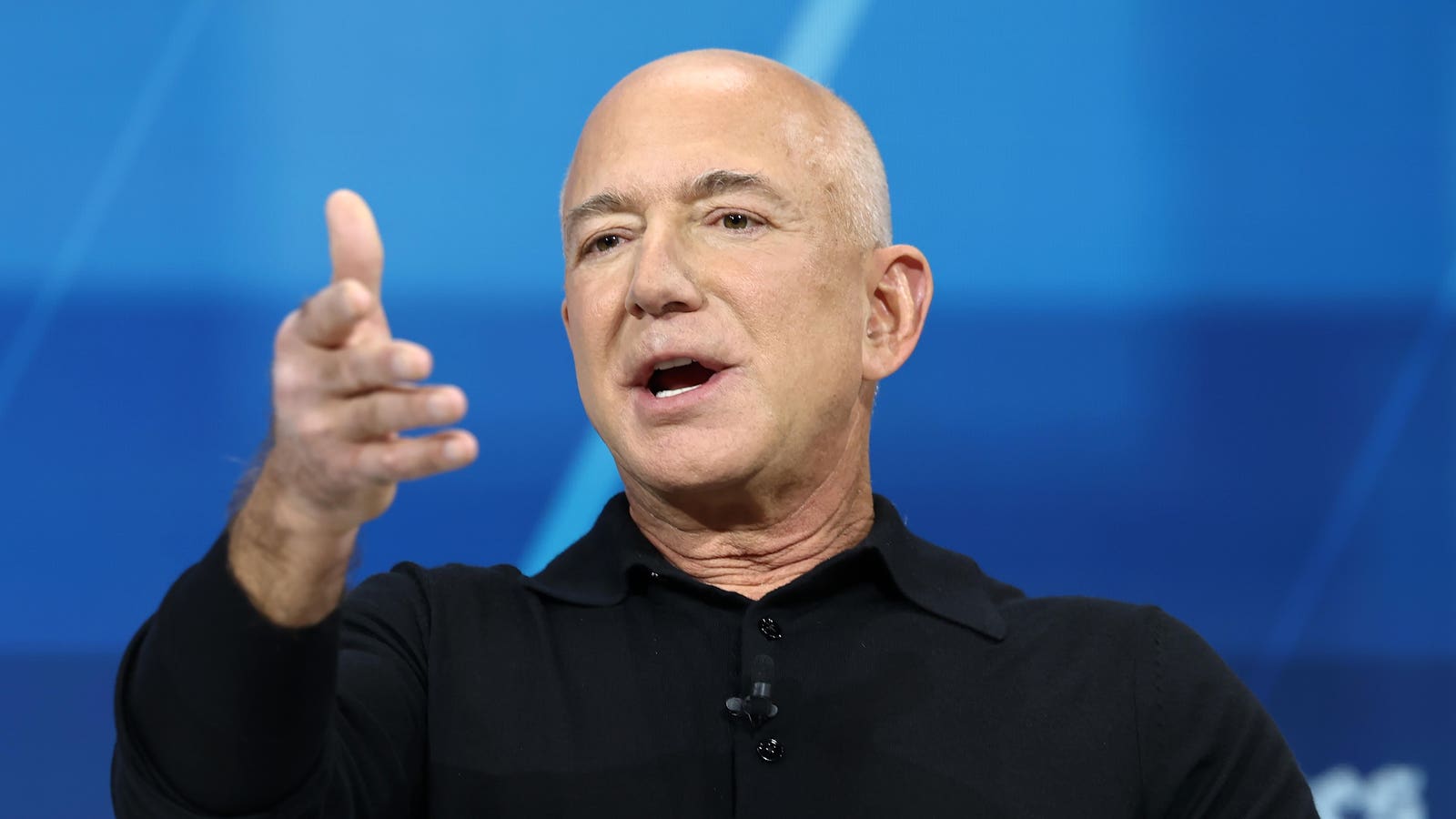In two minutes on the Lex Fridman podcast, Amazon founder Jeff Bezos imparts timeless wisdom about … [+]
Jeff Bezos, the founder of Amazon, shared a powerful story about the firm’s early days that offers timeless lessons for leaders. Bezos appeared on the Lex Fridman podcast and, in the course of their conversation, described a meeting about hold times for customers contacting Amazon’s help line. The call center data showed customers waiting less than 60 seconds for phone support, yet complaints about excessive wait times persisted.
It would have been easy to dismiss the complaints as outliers or the product of a small number of cranks. Instead, during that meeting, Bezos decided to test it himself. He picked up the phone, dialed Amazon’s customer service number, and waited – for over 10 minutes!
This simple act dramatically exposed the flawed data and sparked a chain of events to correct it.
This segment of the podcast ran just over two minutes, but in that short time Bezos delivered massive wisdom. Here are my five key takeaways:
1. Anecdotal Evidence is Important
There is perhaps no more data-driven company than Amazon. But, Bezos’s story highlights that while data is crucial for decision-making, anecdotal evidence should not be dismissed. Customer anecdotes, complaints, and feedback can offer valuable insights into the customer experience that might not be captured by metrics.1 Bezos emphasizes, “When the data and the anecdotes disagree, the anecdotes are usually right.”
Years ago, I fired my top phone salesperson. She was consistently the best in the single metric we were measuring, total sales per week. As in the Bezos example, we had sporadic complaints about the individual’s abrupt treatment of customers. We didn’t pay much attention to the complaints, though – the numbers said she was our top producer.
Ignoring the complaints was a mistake. Much later, we combined the number of calls each rep handled with the sales data and a different picture emerged. Our “star” achieved those numbers by answering more calls and not helping customers with questions. Our other reps were generating more sales per call, meaning that the high revenue rep was actually costing us revenue every time she answered the phone. We didn’t see that until we used the right data.
2. Question the Metrics
When anecdotal evidence contradicts the data, it signals a need to examine the metrics being used. Bezos suggests that in such cases, “It’s usually that you’re not measuring the right thing.” Businesses should constantly evaluate whether their metrics accurately reflect the aspects of the business they intend to measure, particularly customer satisfaction and experience.
In my salesperson example, we initially failed to measure the data that revealed who the top performers really were.
3. Truth-Telling and Action
Bezos’s decision to publicly call customer service during a meeting demonstrates his commitment to “truth-telling.” He emphasizes the need to acknowledge uncomfortable truths and take action to address them. This suggests that leaders should foster a culture where employees feel comfortable raising concerns and challenging the status quo, even when it involves admitting mistakes or shortcomings.
We don’t know the details, but it strikes me as very likely that the call center reps, if asked, would have said that customers did, in fact, complain about their hold times. Likely, managers didn’t want to convey an inconvenient truth up the chain of command.
4. Demonstrations Are Powerful
By personally experiencing and demonstrating the long customer service wait time, Bezos effectively conveyed the urgency of the issue to his team. Real-world demonstrations can make a point and galvanize action. Leaders can often make a bigger impact by showing rather than simply telling.
In his excellent book, The Ministry of Common Sense, author Martin Lindstrom describes a “workshop” he staged for executives of a communications company. They were directed to a room to wait for the workshop to begin. The room was hot, the chairs were uncomfortable, and a television blared advertising messages.
After waiting more than an hour for their esteemed guest to begin the session, the executives demanded to know when the workshop would begin. Lindstrom appeared to reveal this was the workshop. They had just experienced what their customers did when they came to a company store to get a problem solved. The leadership team got the message and began improving their customer experience.
5. Focus on the Customer
The anecdote reinforces Bezos’s customer-centric approach. He prioritizes customer experience over potentially misleading data. Businesses must prioritize understanding and addressing customer pain points, even when it means challenging internal assumptions or metrics.
And, beware of self-serving managers. We don’t know why the data was wrong in Bezos’s case, but it’s possible that collecting the wrong data wasn’t an accident. I had an exceptionally frustrating experience with my internet provider. At the end of my lengthy interaction, they asked if I’d complete a short survey.
I answered in the affirmative, ready to let them have my opinion in the clearest possible terms. But, the only questions they asked were about the call center rep. I had nothing bad to say about her, she was doing the best she could under the circumstances.
Notably, they did not ask what I thought about my overall experience. They didn’t ask if I would recommend their service to others. I’m convinced that the company didn’t ask those kinds of questions because the answers would have been embarrassing. The CMO doesn’t want to explain to the CEO why half its customers hate the company. So, they don’t ask. Better to report good news, like, “91% of our customers think our reps are courteous and helpful.”
Be Like Jeff
It’s taken you longer to read this article than for Jeff Bezos himself to tell the story. To hear him tell it in a couple of minutes, here’s the video:
Bezos’s focus on the customer and way of thinking about business are big reasons Amazon went from startup to global domination in so few years. When you are confronted with a problem, ask yourself (or perhaps ChatGPT), what would Jeff do?

